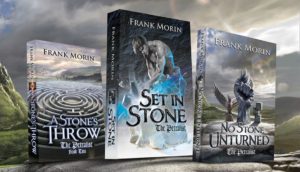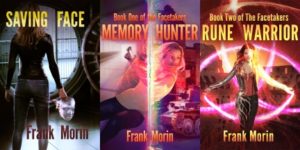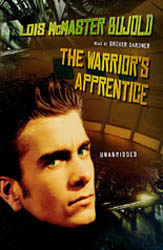 Happy Cinco de Mayo!
Happy Cinco de Mayo!
Hopefully you’re having a barbecue. Here at the Fictorians I’m sharing my special sauce with you.
What makes a Frank Morin book worth reading? (And they are definitely worth reading! Trust me).
Now that I’ve got six novels out there, with a couple more due by the end of the year, I’ve got enough material for readers to get a good taste for my secret sauce.
When you read one of my novels, you can generally expect:
- Big, epic stories. Seriously, most of my books are at least 150,000 words. Even my one novella is pretty epic.
- Complex, intricate plots, with a large cast of characters.
- Lots of action. I like books that move along and in which lots of fun stuff happens, so that’s what I write.
My works to-date span two very different series, and they do have important differences. Jumping from one series to the other has proven a fun challenge and highlighted for me the significant differences.

First, The Petralist.
Big Magic. Big Adventure. Lots of Humor.
Yup, they’ve got the huge, epic story line with tons of action. Layered on top of that is a super cool magic system based on rocks It’s all topped with a layer of humor that raises the stories to a whole new level. The humor makes them accessible for younger readers down into middle school, even though they’re thoroughly enjoyed by high schoolers and adults too.
I dialed up the numbers a lot on the Humor Scale.
A really interesting theme I get to explore through this series is the question of loyalties. In particular, what happens when loyalties to family, to town, to nation, and to a love interest end up conflicting? Which loyalty trumps others, and what to do when people you care about make choices that place them in conflict?
It’s hard to fight against someone you care for, and those difficulties are compounded further by the fact that both sides in the conflict have reason to feel justified in their actions. It’s even harder to fight an enemy, when they might just be right.

The Facetakers.
These urban fantasy historical thrillers are so much fun. Think The Matrix, but through history. These are hard-hitting thrillers that my editor described as “Mission Impossible meets Agents of Shield“.
They’ve got an intricate, awesome magic system fueled by the force of human souls. I switched to a strong female lead for these, and Sarah is simply amazing. The supporting characters are fascinating, and they pretty much all have dark moments in their pasts where they’ve done things that Sarah has a hard time accepting. She and her team must hunt through deadly memories that brush against the fabric of time, fighting superhuman-enhanced enemies whose agendas will topple the world order and destroy Sarah and everyone she loves.
A definite stand-out about these novels are the many historical settings. History is not what the books claim it is, and Sarah learns what ‘really’ happened in critical moments in history, which become the primary battlegrounds.
One bonus of these books is the body-swapping tendencies of many of the characters, which allow me to explore all kinds of fun questions of identity and body image. If you’re suddenly swapped into a very different body, are you still you?
So if you like stories that move fast, make you laugh at one moment, but then ask hard questions in the next, and will very likely keep you up a lot later at night than you had planned, sample these books. You won’t be sorry.
About the Author: Frank Morin

 Frank Morin loves good stories in every form. When not writing or trying to keep up with his active family, he’s often found hiking, camping, Scuba diving, or enjoying other outdoor activities. For updates on upcoming releases of his popular Petralist YA fantasy novels, or his fast-paced Facetakers Urban Fantasy/Historical thrillers, check his website: www.frankmorin.org
Frank Morin loves good stories in every form. When not writing or trying to keep up with his active family, he’s often found hiking, camping, Scuba diving, or enjoying other outdoor activities. For updates on upcoming releases of his popular Petralist YA fantasy novels, or his fast-paced Facetakers Urban Fantasy/Historical thrillers, check his website: www.frankmorin.org










 Evan Braun is an author and editor who has been writing books for more than ten years. He is the author of The Watchers Chronicle, a completed trilogy. In addition to writing science fiction, he is the managing editor of
Evan Braun is an author and editor who has been writing books for more than ten years. He is the author of The Watchers Chronicle, a completed trilogy. In addition to writing science fiction, he is the managing editor of